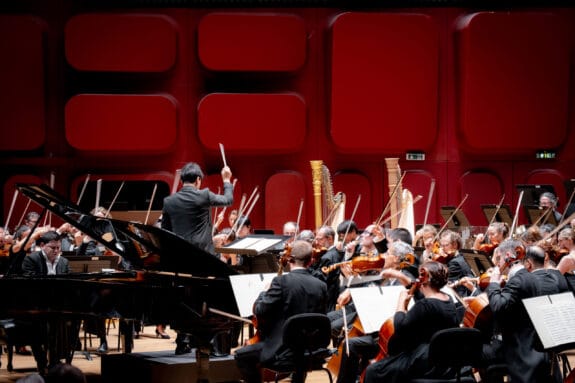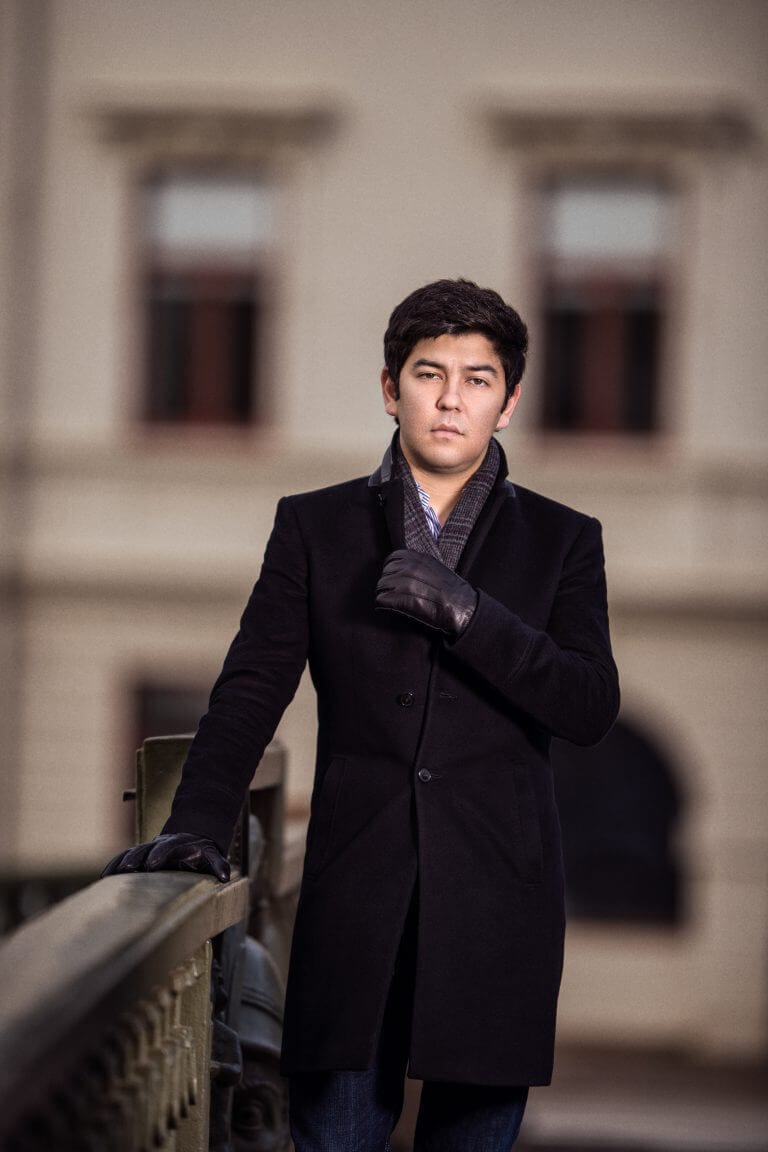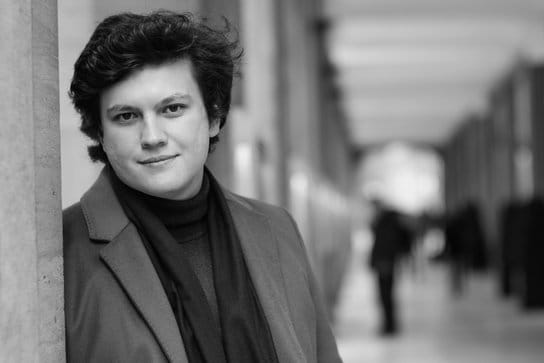
Tchaikovsky, Holst Behzod Abduraimov (piano); Maîtrise de l’Opéra du Rhin; Strasbourg Philharmonic Orchestra / Aziz Shokhakimov (conductor). Salle Erasme, Palais des Congrès, Strasbourg, 5.9.2024
Tchaikovsky Piano Concerto in B flat minor, Op. 23 (1874/5)
Holst The Planets, Op. 32 (1914-17)
The opening concert of the Orchetsre Philharmonique de Strasbourg’s 2024/25 season featured two Uzbek musicians: the orchestra’s Principal Conductor Aziz Shokhakimov, and pianist Behzod Abduraimov. As well as their geographical bond, the two seemed musically united in this phenomenal, variegated performance of Tchaikovsky’s First Piano Concerto.
For all of his prodigious technique (also on display in the Liszt encore), it was Abduraimov’s sensitivity that stood out. His playing, keen and intelligent throughout, revealed the score anew, with myriad detail everywhere in evidence. Dynamic contrasts were notable (not least because of this piece’s reputation as a war-horse). This was mirrored in Shokhakimov’s orchestra, the opening melody superbly and carefully, moulded.

That detail continued into the second movement: the flute solo lovely, but here with the most magical bassoon contribution; again, it was the combination of the conductor’s lightning reflexes and Abduraimov’s legerdemain that elevated the scherzando aspect of this movement. The finale danced, and yet burst with energy; and how absolutely even were Abduraimov’s hands. A joy.
The feeling of hearing the familiar anew was so refreshing; such a multicoloured performance is absolutely cherishable. There are some terrific recordings by Anduraimov out there, mainly on the Alpha label: try his solo rectal of Debussy (Children’s Corner), Chopin (Préludes) and Mussorgsky (Pictures).

Holst’s The Planets might be familiar in the UK, but the ‘suite for orchestra’ is rarely heard abroad. And yet another approach, and in the context of the present concert another fresh approach, can yield many insights. While Karajan’s famous Berliner Phlharmoniker might have added a Germanic gloss in his famous DG recording, Shokhakimov’s Alsatian orchestra has its own special merits. There was a refreshing spring in the step of the big tune in Jupiter (also known as ‘I vow to thee my country’). Mars, too, was gifted with more urgency than is often the case; perhaps the hammer-blow repetition of the rhythm and its subsequent implosion lacked the final percentage point of shattering effect (for that, I refer to a – to me – somewhat surprising combination, the Hallé Orchestra and Maurice Handford in a performance I heard on January 18, 1981, and never forgotten).
Shokhakimov seemed keen to reveal the beauty of Holst’s score: a carefully-shaded Venus, a Uranus filled with chiaroscuro supremely controlled Neptune (the end only spoiled by the slamming of the previously slowly-closing door.
The only casualty was Mercury, very accurate but missing the elusiveness and the sheer (pardon the pun) quicksilver magic.
Nevertheless, this was a fine start to the Strasbourg orchestra’s season. The Maîtrise de l’Opéra du Rhin excelled in their vocal control; the orchestra reacted with lightning reflexes to Shokhakimov’s direction throughout.
Incidentally, a recent release on the Somm label includes a significant performance of The Planets conducted by Sir Adrian Boult with the Boston Symphony Orchestra that we will be featuring in due course. Abduraimov’s Decca recording of the Tchaikovsky is available on Amazon here (iDagio) and that historical Planets is available here (iDagio).










